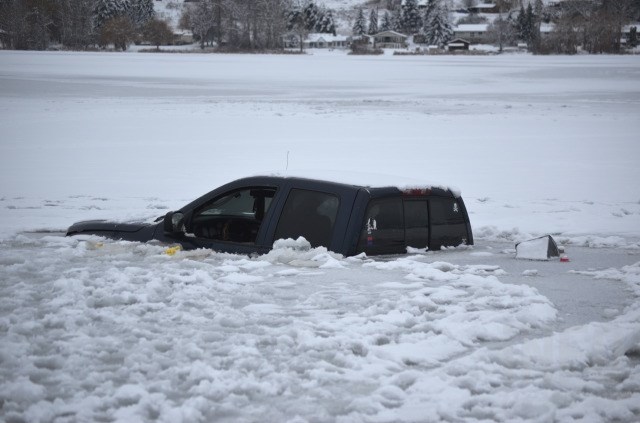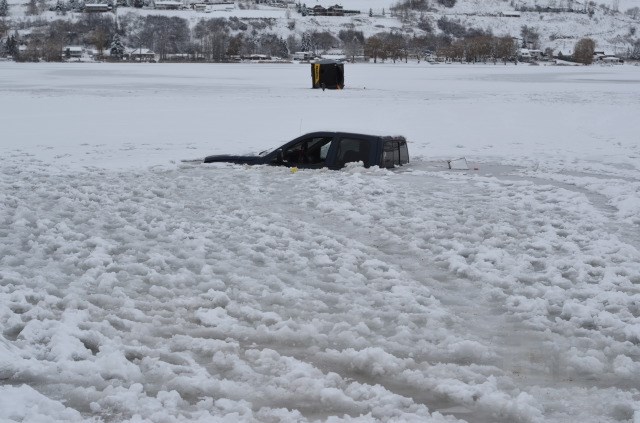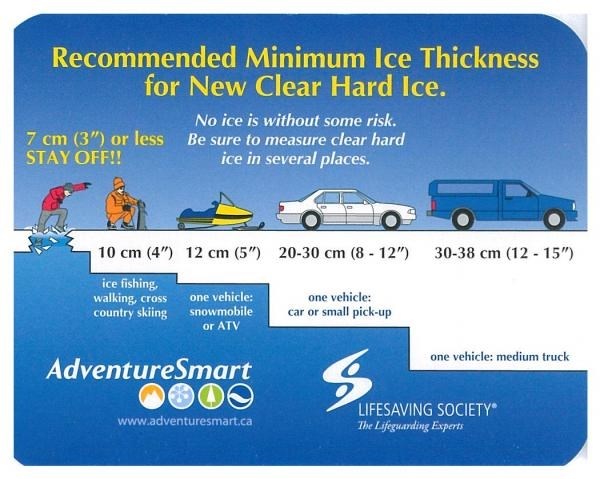
This truck has been frozen in place in Swan Lake since Monday, Dec. 28, 2015.
(CHARLOTTE HELSTON / iNFOnews.ca)
December 30, 2015 - 2:30 PM
VERNON - It’s been cool and snowy in the Okanagan lately, but not cold enough to stop a truck from plunging through the ice on Swan Lake in Vernon.
The lake is a popular ice-fishing destination, and it’s not uncommon to see vehicles out on the ice during the winter. But as one driver found out, the ice isn’t quite thick enough just yet.
A truck has been sitting partially submerged in the lake for a couple of days now, about 30 feet off shore. The full circumstances of the sunken truck aren’t known, and Const. Jocelyn Noseworthy with the Vernon RCMP says the incident was never reported to police.
Meanwhile, the big question on everybody’s lips is whether or not ICBC covers such situations. Generally speaking, it appears it does.
In an email to infoNEWS.ca, ICBC says it doesn’t exclude coverage for vehicles operated on an ice road (a road built across a frozen waterway), frozen lake or river. If the vehicle breaks through the ice and becomes submerged, the loss would be covered under ICBC’s comprehensive coverage, provided the owner has purchased such optional coverage on their policy. If the customer has optional coverage elsewhere they should check with their insurer to see if they have coverage for this kind of loss, ICBC says.

(CHARLOTTE HELSTON / iNFOnews.ca)
“It’s important to note however that we do exclude losses where the insured intentionally tries to damage or destroy their vehicle. For example, if they were to intentionally drive onto a lake they knew was not sufficiently frozen for vehicle travel with the goal of destroying their vehicle, ignoring posted warning signs and the advice of local officials that the lake was unsafe for vehicle travel, then we would exclude coverage for the loss.”
The Lifesaving Society of B.C. suggests measuring ice thickness prior to recreational use, and recommends a minimum of 30 to 38 centimetres for a medium-sized truck. More tips and safety information can be found here.

Image Credit: Lifesaving Society
To contact a reporter for this story, email Charlotte Helston at chelston@infonews.ca or call 250-309-5230. To contact the editor, email mjones@infonews.ca or call 250-718-2724.
News from © iNFOnews, 2015